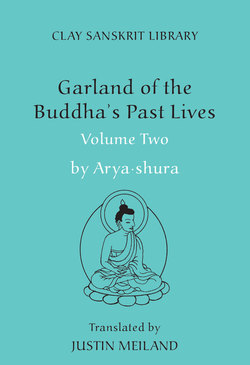Читать книгу Garland of the Buddha's Past Lives (Volume 2) - Aryashura - Страница 28
На сайте Литреса книга снята с продажи.
ОглавлениеThe Sanskrit Text
For stories 21–34 I have used Heinrich Kern’s edition (1891) as a base text, which I have then emended by referring to manuscript readings provided by Peter Khoroche in his “Towards a New Edition of Arya-Sura’s Jatakamala” (1987). I have particularly followed the readings of the earlier manuscripts N and T For stories 33 and 34, I have benefited greatly from the text-critical comments of Michael Hahn (2001). A list of all emendations made can be found at the end of the volume.
I am very grateful to Andrew Skilton for his helpful comments on the introduction and translation.
Notes
1Bodhi·sattva: a person who vows to become a perfectly awakened Buddha by fulfilling the perfections (paramita). The word bodhi/sattva literally means “awakening being.” K.R. Norman (1997: 104f.) argues that the word is a back formation from the Prakrit bodhi/satta, the Sanskrit equivalent of which is either bodhi/sakta or bodhi/sakta. These two compounds can be translated as “aspiring for awakening” (literally “attached to awakening”) and “capable of awakening” respectively.
2 See also 28.95 [57]: “Those who are compassionate and great in reason are not afflicted by their own pain as much as by the pain of others.”
3 See also ‘The Birth-Story of the Great Monkey’ (27), in which the Bodhi·sattva endures pain to save his troop of monkeys.
4 In ’The Birth-Story of the Antelope’ (26), the Bodhi·sattva is, however, later betrayed by the person who declares these words. ________
